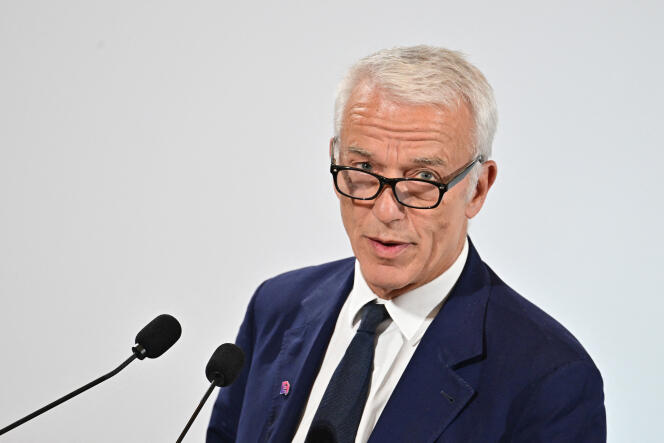


France's major private employers, who stayed out of the debates on the government's controversial immigration bill, made a late appearance hours before the law was adopted on Tuesday, December 19. "It's not the bosses who are massively demanding immigration, it's the economy," said Patrick Martin, president of the MEDEF, the country's largest employers' federation, speaking on the radio. "By 2050," he said, "Unless we reinvent our social and economic models, we will need 3.9 million foreign employees."
Faced with labor shortages in almost every sector of the economy since the Covid-19 pandemic, business leaders nevertheless remained silent in recent months, much to the dismay of the government, which was counting on their support. Only a few federations – the ones most affected, such as the hotel, restaurant, and personal services sector – came out in favor of regularizing undocumented workers. "It's the employers who have asked for more manpower," argued Interior Minister Gérald Darmanin, in an interview with Le Monde in November 2022, as he presented the content of the original bill.
Against this backdrop, the MEDEF president's statement obviously did not go unnoticed. But his comments were extremely cautious. Martin regretted that the economic aspect of the immigration debate was "overshadowed" by the issue of regularizations. Instead, he pointed to the long-term challenge of demographic decline and an aging population, which will both dry up the workforce and create new needs for the elderly. Martin added: "We didn't ask ourselves what's most important: Will we or won't we need immigrant labor, legal of course, (...) from 2036 onwards? We think we'll have a hard time escaping that, like many other countries that have made that choice."
Historically, employers have long played a leading role in migration policy," said the business historian and CNRS researcher Hervé Joly. "Until the crisis of the 1970s, immigration was encouraged by free-market and right-wing circles, as it promoted competition on the labor market and enabled the recruitment of cheaper labor. This was not always publicly acknowledged, as the unions and the left were rather hostile to it."
Business leaders remain silent today. "We had other issues to deal with," MEDEF said, citing pension schemes and the social security budget, claiming that it had not been consulted by either political parties or the government. Economic immigration represents "less than 10,000 people a year," a "very small fraction" of total immigration, it also argued.
If employers have kept their distance from the heated debates on immigration, it was also because they were afraid of being targeted politically. Some leaders feared attacks from the far-right Rassemblement National or the radical left La France Insoumise if they spoke out.
Few sector federations asked the MEDEF for a public statement, but some spoke for themselves: The industrial sector, for one, is cruelly short of welders, boilermakers and engineers, but these shortages of skilled workers are not the ones affected by the regularization of undocumented workers. Many employers also feel that a systematic and more uniform application of the 2012 regulation on regularizations would be sufficient. And they advocate that the government should focus on getting people who have strayed out of the labor market back into work. Added to these reasons are the personal beliefs of managers, which sometimes conflict with their economic needs.
Translation of an original article published in French on lemonde.fr; the publisher may only be liable for the French version.
